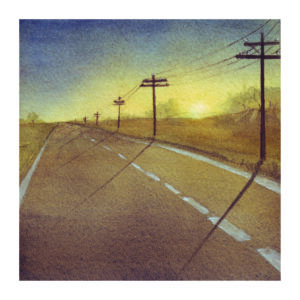Shelly Skinner is the Founder and CEO of Lionheart Camp for Kids. As a Social Worker whose own mother died when she was a young adult, Shelly is committed to building a community where grief is seen as a healthy and normal response to death and life challenges. A world where everyone is taught the skills to identify grief and grieve in a safe and healthy way.
We recently spoke to Shelly and asked her advice about the best way to talk to kids about grief and loss.
‘Checking in’ is something that kids really appreciate. As adults we get a bit stuck in our grief, we jump in a grief boat and we paddle around, and we really like putting the grief blanket on and sitting right in there, but kids don’t do that.
A child might be told that their parent has died and they will cry and be really sad, and then ask if they can go play with their friends, or ask what’s for dinner. And the adult will think, ‘didn’t they understand what I said?’. But kids are so good at grief that they will attend to it in a moment, and then they’ll have some respite from it, and then they’ll attend to it again, and have some more respite. They’ll probably want to talk about it just before they’re meant to go to sleep at night and you don’t have the energy. But they’ll always go back to it when they need to.
 The best thing we can do for kids is to be as honest as we can. Particularly these days with social media making things like suicide and murder so visible.
The best thing we can do for kids is to be as honest as we can. Particularly these days with social media making things like suicide and murder so visible.
So many kids have lost a parent by suicide and haven’t been told the truth. But kids hear everything—every whispered conversation from behind closed doors. They might only hear snippets of details and try to fill in the gaps, and that can be really problematic. If a child doesn’t hear it from you, someone is going to tell them a version in the schoolyard. Often the ‘mean kid’ version.
Kids need to be able to trust the adults in their lives, so being as clear and direct as you can, even with hard information, helps kids know that a/ nothing is off limits to talk about and b/ they can trust you enough to ask tricky things.
 We have an activity on our Lionheart camp called ‘the anonymous question box’. Everyone who comes to our camps has at least one question they haven’t asked for fear of upsetting someone, or feeling that it’s inappropriate. So, we invite everyone to write their question down, put it in the box, and on the second day of camp, a doctor comes along and we sit down in a big group (with a social worker present) and answer all the questions.
We have an activity on our Lionheart camp called ‘the anonymous question box’. Everyone who comes to our camps has at least one question they haven’t asked for fear of upsetting someone, or feeling that it’s inappropriate. So, we invite everyone to write their question down, put it in the box, and on the second day of camp, a doctor comes along and we sit down in a big group (with a social worker present) and answer all the questions.
When it comes to answering kids questions, the short answer is, it’s all about being age appropriate and brief with your answers. Simple, clear answers and always introduce the idea of a follow-up question.
So, a child might ask, why do some people who get sick die and some people don’t die? We could go on for ages about details, but an answer could be: ‘Do you know what, every living thing will die, and we don’t know when we’re going to die, but everyone does the very best they can to make people better’.
And then we might say: ‘If you have a follow-up question, you can ask me any time’.
 People often ask us at our Lionheart camps: If kids say things like, where do you go after you die? Or what happens to your body? What answer do you give? After all, everyone’s going to have a different belief.
People often ask us at our Lionheart camps: If kids say things like, where do you go after you die? Or what happens to your body? What answer do you give? After all, everyone’s going to have a different belief.
We say: Every family thinks or believes something different. For example, we could all be Jewish people in this room, all have the same faith, but even then we would all do things in our family slightly differently.
So, your job is to talk to your family and find out what it is that’s important to you, and what you believe. Then really lean into that. Do all the rituals—all the things that make sense and are right for your family.
Having all the family on board is so important, so kids don’t hear one thing from a parent and something different from an aunt or a grandparent.
 Grief plays a bigger part in people’s lives than we know. We carry grief into every day.
Grief plays a bigger part in people’s lives than we know. We carry grief into every day.
If we are experiencing significant grief then our threshold for just dealing with our day is going to be so much lower. Kids can’t say, I’m feeling really bereft today, or I really miss my mum. Or my dog died a week ago, and I know it’s only my dog, but I just feel really sad.
It’s going to come out in bad behaviour, talking back, withdrawal, or whatever it is for that child.
What we know about grief is that it magnifies who we are. If we are someone who is reasonably quiet then we’ll be far more withdrawn. If we’re someone who uses humour then we’ll be extra funny to the point of annoying. We’re going to see the behaviour, but not know what’s behind it. Behaviour is communication. And what we know about each child is really important.
For more information about Lionheart and its programs visit: Home – Lionheart Camp For Kids

